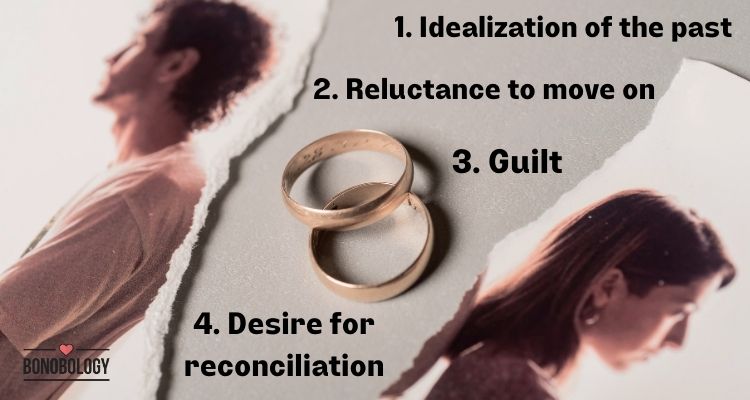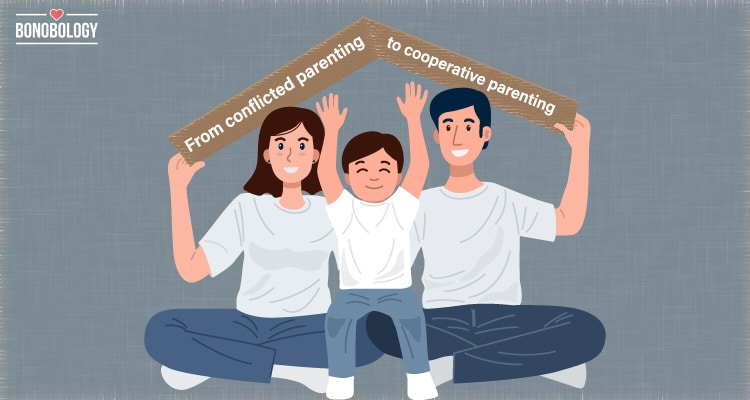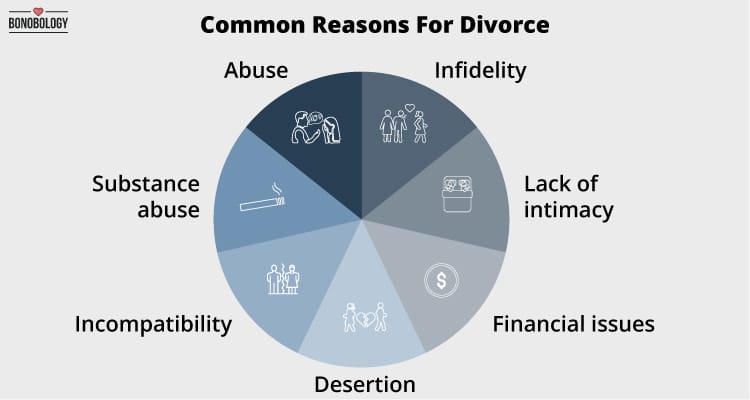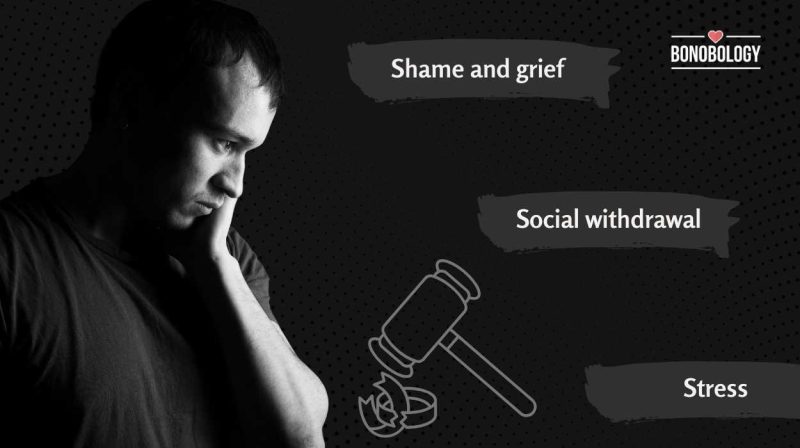Divorce can be one of the most stressful and frustrating experiences of one’s life. Your whole life is disrupted – emotional outbursts, strained finances, change in lifestyle and living conditions, arguments, and lots of unnecessary and uncalled-for drama. Cases can get complicated, which is why you must know what can be used against you in a divorce.
Whether it’s a mutual split or a contested divorce, the smallest of actions can be used as evidence against you and cause further damage to your case. We spoke to advocate Siddhartha Mishra (BA, LLB), a lawyer practicing at the Supreme Court of India, about what can be used against you in a divorce and how you can protect yourself. He also shared divorce tips for men and women and threw light on what not to do during a divorce.
8 Things That Can Be Used Against You In A Divorce And How To Avoid Them
Table of Contents
Divorce is quite a harrowing experience for a couple who has decided to end their marriage. “A divorce is a very complicated process. It is one of the most traumatic experiences for any couple. A contested divorce can be a long-winded and costly affair,” explains Siddhartha. You not only have to make the emotionally tough decision to separate from your partner but also figure out other logistics – finding a lawyer, checking your finances, finding a house, child custody, source of income, etc.
With so much going around, your emotions are likely to run high and force you to act in ways that prove to be detrimental to your case. It is extremely important to be in control of your actions before and during divorce proceedings because any kind of behavior could be construed as inappropriate by your spouse and be used as evidence against you in court. Being aware of your behavior becomes all the more necessary if there are children involved in the case.
So, exactly what can be used against you in a divorce? Anger issues, debts, text messages, emails, social media posts, hidden assets, witness statements, extravagant expenses, romantic relationships – the list is endless. There’s a lot that you need to be mindful of if you’re contemplating filing for divorce or going through one. To help you navigate such a situation, we’ve made you a list of 8 things that can be used as evidence against you in a divorce and how to avoid them.
1. Do not indulge in extraordinary spending of marital assets
What not to do during divorce? One of the most important divorce tips for men and women is to refrain from unnecessary or questionable spending because everything is traceable. Siddhartha elaborates, “There is something called dissipation of assets or marital waste that is taken into consideration when you file for divorce. It means the deliberate and conscious destruction of marital assets by one partner. These assets would have otherwise been distributed equally between the couple during the proceedings. But if they’ve been depleted by one spouse alone, it could pose a major problem.”
You need to be careful about what can be used against you in a divorce and avoid such pitfalls. There are different ways in which marital waste can be proven – spending marriage money on extramarital affairs or business ventures, transferring money to someone else before divorce, indulging in illegal activities or selling the assets for a lesser value.
How to avoid: It’s best not to engage in such activities but, if you have, make sure your lawyer knows about it so that they can figure out if the claims are substantial and find a way to protect you from this mess. It’s not something that you hide or not say to a divorce lawyer. Also, manage your expenses and keep them minimal until the divorce is finalized. You have legal bills to pay. The lavish expenditure can wait.
Related Reading: What Is Financial Infidelity And How To Recognize It
2. Don’t hide or move assets, money or other funds
This is one of those things you need to add to your ‘what not to do during a divorce’ list. Hiding assets from your spouse or moving money out of joint bank accounts before the divorce is a bad idea and will only prove detrimental to your case. It will raise the same red flags as extravagant spending of marital money or assets.
There’s a lot of paperwork involved in a marriage – home loans, taxes, joint bank accounts, credit cards, property papers, and more – all of which can be used as evidence against you in court, if your spouse thinks you’re hiding or withholding assets, money or other funds. If you’re found guilty, it’ll damage your credibility as well as your case.
How to avoid: Don’t do it. Simple. There’s no point in trying to act smart because you will be caught eventually. There are documents for everything. “Everything, including your credit cards and other financial information, is traceable,” says Siddhartha. Moving or hiding money and assets will only worsen the situation for you.

3. Avoid a romantic relationship until officially divorced
If you’re wondering what can be used against you in a divorce, this is one. Romantic relationships are one of the most common things that can be used as evidence against you during divorce proceedings. It is normal to move on with someone else after separating from your spouse but doing the same before the divorce is finalized could create a problem for you.
Being in a relationship with someone else will hurt your chance of a quick divorce and might interfere with you getting a favorable outcome, especially if you have children. Even if your new partner shares a good relationship with your offspring, their background will be heavily scrutinized and questioned. It might just affect your chance of getting your child’s custody or visitation rights.
It might just escalate problems with your spouse and make them jump to the conclusion that you’re seeking divorce due to an extramarital affair. This will make it difficult to reach a divorce settlement, get child custody, complicate your co-parenting relationship (in case you have children), and negatively impact the judge’s decision.
How to avoid: It is advisable to wait until the divorce is finalized. Introduce your children to your new partner after the divorce. Consider spending time with family, friends and loved ones instead. However, if you are in a relationship, talk to your lawyer about the best options available and how to protect yourself in a divorce.
4. Get restraining orders in case of violence
This is one of the most crucial divorce tips for women and men. According to Siddhartha, “Staying in a broken home could cause additional tension, especially if your partner is abusive or if you are constantly fighting in front of your children.” If you’re filing for divorce due to domestic violence or any other kind of emotional abuse, you also have the right to file for a restraining or protective order. It is also possible that your partner gets violent or becomes abusive during the proceedings. In such a situation, it is important that you know how to protect yourself in a divorce and filing a restraining order is one way.
Also known as a protective order, a restraining order will protect you and your children or any other family member from being physically or sexually assaulted, abused, stalked or threatened. Partners are usually scared to file a restraining order for fear of consequences. But doing so will serve as proof of your spouse’s character and work in your favor during the court proceedings.
How to avoid: Do not tolerate violence or any form of abuse at any cost. Siddhartha elaborates, “If your spouse commits domestic violence against you or your children, call the police without delay. Insist that an officer visits your home. File a report and contact your lawyer as soon as possible. In such situations, it is best to find another living situation immediately.”
Related Reading: Do Social Media Sites Encourage Cheating & Infidelity?
5. Posting on social media
While making a list of what not to do during a divorce, put this right at the top. If you’re thinking about what can be used against you in a divorce, social media posts top the list. Even if you posted something on impulse before and then deleted the same, it will stick around forever. It is possible to retrieve it.
If your partner finds out about any such post that puts them in a negative light, their lawyer will use it against you in court. You may not have meant any harm but social media posts can be used as evidence against you in a divorce. It is one of the easiest and most convenient ways for partners to track or accuse each other of inappropriate behavior.
How to avoid: Refrain from posting on social media before and during a divorce. It’s one of the most important divorce tips for women and men. It is better to share your worries and struggles with a few close friends and family but posting about the same on social media is unnecessary and not advisable.

6. Be mindful of the text messages and emails you send
This is another point to add to your ‘what not to do during divorce’ and ‘what can be used against you in a divorce’ lists. Be careful and mindful of the words you choose to write in the text messages and emails you send to your partner. Anything you put in writing can and will be used as evidence against you in court.
Like social media posts, text messages and emails are also traceable and easy to retrieve even if you’ve deleted them. No chat or communication is private. There is nothing called secret chatting. Social media, emails, and text messages are increasingly being used as evidence in not only divorce cases but also otherwise. Your partner or their lawyer can also submit a subpoena asking for your call logs, messages, and emails.
How to avoid: Choose your words carefully while sending emails and messages. If it is not necessary or urgent, avoid doing it altogether. If you find yourself stuck in a similar situation, let your lawyer know about it. It’s not one of those things you hide from or not say to a divorce lawyer. Being transparent with your lawyer can help you figure out how to protect yourself in a divorce.
7. Never act out of spite or anger
This is, again, one of the most important divorce tips for women and men. What can be used against you in a divorce, you wonder? Things said in anger or spiteful actions definitely qualify. In such stressful situations, emotions usually run high and you may feel the urge to act on an impulse to get back at your partner. But, it is extremely important to keep your emotions in check and control your anger while going through a divorce.
Anything you say or write in anger can and will be used as evidence against you. Letting your anger get the better of you will do you more harm than good. It’s not easy but if you act without thinking, the divorce may not yield the desired results. Maintain your composure and avoid making rash decisions for a smooth process.
How to avoid: There’s no other solution than to figure out a way to control your anger. Siddhartha says, “Avoid making statements in anger. Never send emails when you are angry or upset. These will come back to haunt you in the divorce. Remember that this will be a tough experience, but you will get through it and will feel empowered in the process.”
8. Don’t sign anything
Make sure you add this to your ‘what not to do during divorce’ list. Siddhartha explains, “People usually make the mistake of signing papers or preliminary agreements, which eventually lead to property and custody battles being decided against them.” If you’re going through a divorce, read every document before signing them. Run it by your lawyer for approval.
How to avoid: “Don’t do it. If your spouse wants you to sign documents, ignore or decline, saying that your lawyer has asked you to not sign anything without running it by them,” says Siddhartha. If you have signed any document without the knowledge of your attorney, let them know. This is not something you do not say to a divorce lawyer.
These are a few divorce tips for men and women that could come in handy if you are stuck in a similar situation. Divorce is never easy. There are many dos and don’ts involved in a divorce for both parties. Lawyers themselves will present you with a list of what you should and should not do during a divorce. They’ll tell you what can be used against you in a divorce. It can be emotionally exhausting but try to focus on moving on and creating a better life for yourself.
“The divorce process, in itself, is excruciatingly painful to many. Take your time to plan things carefully and then file for divorce when you have your affairs in order,” says Siddhartha. Think about it before making a decision. Make sure you approach the divorce in a calm and composed manner and with a rational outlook. It’s easier said than done but it’s the only way to not make it more difficult than it already is. If you are stuck in a similar situation and looking for help, Bonobology’s panel of experienced and licensed experts is only a click away.
Divorce And Children – 8 Deep-Seated Impacts of Separation Parents Must Know
Your contribution does not constitute a charitable donation. It will allow Bonobology to continue bringing you new and up-to-date information in our pursuit of helping anyone in the world to learn how to do anything.























Featured
The Hidden Benefits Of Divorce
Top Legal Tactics for Alimony Disputes Between Parents
Divorce Regret: What Is It, Signs, And Ways To Deal
The Pros And Cons Of Being Your Own Divorce Lawyer
15 Subtle Yet Strong Signs Your Marriage Will End In Divorce
10 Things To Do When You Are Thinking About Divorce
10 Tips For Divorced Parents To Handle Joint Custody Effectively
9 Sneaky Divorce Tactics And Ways To Combat Them
15 Most Common Reasons For Divorce
How To Cope With Divorce As A Man? EXPERT ANSWERS
11 Ways To Remain Sane During a Divorce
7 Important Things To Know About Dating While Separated
The Top Rules Of Separation In Marriage To Make It Successful
Lonely After Divorce: Why Men Find It So Hard To Cope
How To Rebuild Life After Divorce: Handling Kids, Money, Dating, And Self-Love
Failed Celebrity Marriages: Why Are Celebrity Divorces So Common And Expensive?
Surviving Divorce at 50: How To Rebuild Your Life
Gray Divorce 101 – A Guide To Divorce After A Long Marriage
Expert Advice – When To Call It Quits In A Marriage
8 Examples Of Unhealthy Boundaries With Ex-Wife